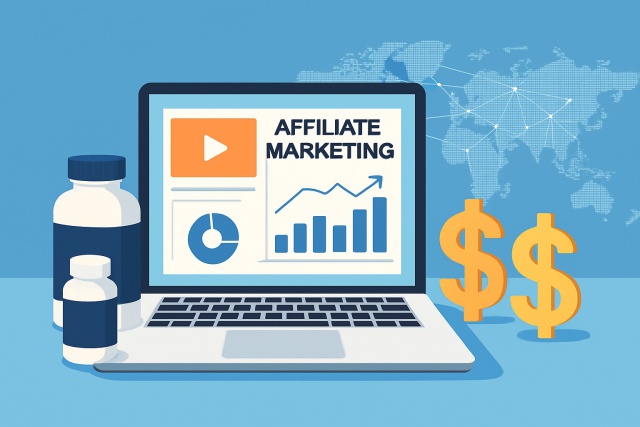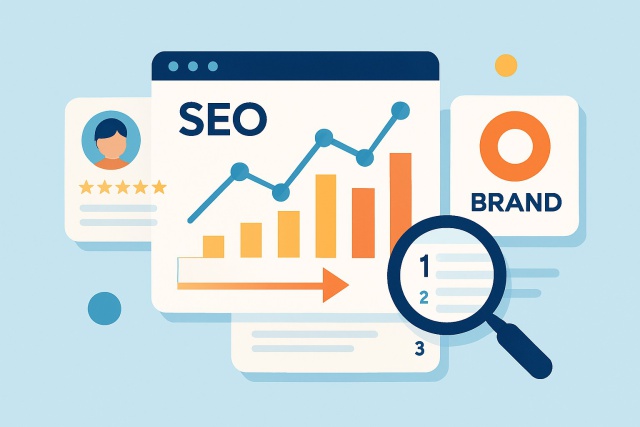
Explore top paying supplements affiliate programs
Explore the best supplements affiliate programs offering high commissions and valuable tools. Boost...

Search Engine Optimization (SEO) is a game-changer in digital marketing, especially for small businesses eager to punch above their weight by boosting online visibility and attracting the right kind of traffic—without emptying the wallet on ads. Getting a handle on how much does SEO cost is a smart first step for any small business hoping to craft a solid strategy and keep marketing budgets in check. This handy guide takes you through the various factors that influence SEO pricing, breaks down common cost structures.
SEO is all about tinkering under the hood of your website to help it climb the ranks on search engine results pages (SERPs). It involves on-page tricks like polishing your content and metadata, off-page moves such as earning valuable backlinks, and technical tweaks that speed things up and make it easier for search engines to crawl your site.
SEO pricing can swing quite a bit depending on a handful of factors unique to each business and their specific SEO needs. Factors like the company's size and how cutthroat the industry is, the geographic areas targeted and how detailed the services are all play a role in shaping the final cost.
The range of SEO services you might need varies from straightforward keyword tweaks to deep technical work and crafting content marketing strategies that stick.
Figuring out whether to bring an agency on board, hire a freelancer, or lean on your in-house team matters because each comes with its own costs and headaches.
How cutthroat your target keywords are is important since tougher competition means more elbow grease and resources.
The website’s age and design play a big role as they can change the amount of technical SEO wizardry required.
Your content creation habits matter too, including how often you pump out new stuff and whether it is blogs, videos or snappy infographics that catch your audience’s eye.
How often and how detailed your SEO reports need to be helps keep tabs on progress and ensures you’re getting a return on investment.
The SEO tools and tech you decide to use can seriously sway your monthly budget because their features and price tags vary.
Small businesses have a handful of SEO pricing options to pick from, each tailored to different needs and budgets—so there is usually something that fits no matter the size of the wallet. Common approaches range from hourly rates for specific tasks and monthly retainers for ongoing support to fixed fees for one-off projects, performance-based payments tied directly to results, and à la carte services where businesses cherry-pick individual SEO components one by one.
| Model | Description | Pros | Cons | Ideal for |
|---|---|---|---|---|
| Hourly Rate | Charges based on the actual time spent tackling SEO tasks. | Offers great flexibility for quick jobs or specific gigs. | Can get a bit unpredictable for ongoing projects, so keep a close eye. | Small tasks or consultations where you need a quick turnaround. |
| Monthly Retainer | A fixed monthly fee that keeps your SEO gears turning smoothly with ongoing support and strategy. | Ensures steady service and helps build long-term momentum. | Requires a bigger upfront commitment and cost, which might give some pause. | Businesses looking for consistent, slow-and-steady growth. |
| Fixed Project Fee | A set price for a clearly outlined SEO project with specific deliverables. | Helps you lock in the budget and scope right from the get-go. | Less wiggle room if the project scope decides to wander off course. | One-time fixes, optimizations, or audits that have a clear finish line. |
| Performance-Based | You pay only when certain SEO goals or rankings are hit. | You’re essentially paying for results you can actually see and measure. | Can be a gamble for providers and might put limits on the kind of services offered. | Businesses laser-focused on results and willing to take a chance. |
| À la Carte Services | Pick and choose individual SEO tasks like keyword research or building links. | Lets you tailor the work to your budget and precise needs. | Sometimes comes at the cost of a holistic strategy, so things might feel a bit disjointed. | Businesses with very targeted, specific SEO needs. |
Small businesses can find SEO pricing options that fit almost any budget whether you are hands-on and ready to tackle things yourself with wallet-friendly tools or prefer to hand the reins to a premium agency offering full-service strategies. Naturally, prices tend to climb as the strategy gets more complex and the reach expands.
SEO service packages typically bundle a variety of deliverables aimed at boosting your website's search engine rankings. You can usually expect thorough keyword research, thoughtful on-site optimization, strategic link building, technical audits that tackle site issues, content creation or expert guidance, and steady performance reports to monitor progress.
To get the best bang for your SEO buck small businesses ought to set clear and realistic goals like giving local traffic a boost or ramping up online sales. After that pick SEO services that actually move the needle toward those goals.
Small business owners often roll up their sleeves and tackle SEO on their own to save a few bucks, juggling a mix of tools and resources. Some prefer to call in the pros—freelancers or agencies—when things get a bit too technical or time-consuming.
| Aspect | DIY SEO | Freelancer | Agency |
|---|---|---|---|
| Cost | Low, typically under $100 a month — a budget-friendly way to get your feet wet | Moderate, usually between $300 and $1,000 each month depending on the freelancer’s rates and availability | Higher upfront investment, often starting around $1,000 and sometimes climbing past $5,000 monthly, but you’re paying for the full professional package |
| Time Investment | High, requires a good chunk of your time and a fair bit of learning curve — not for the faint of heart | Moderate, varies with how busy your freelancer happens to be and how much time they can dedicate | Low, since seasoned pros handle everything efficiently, freeing you up to focus elsewhere |
| Expertise Level | Ranges from beginner to intermediate, so expect a learning journey with some trial and error along the way | Depends largely on the freelancer’s own skill set — could be a hidden gem or more of a generalist | High, backed by a diverse team of specialists bringing solid know-how and experience to the table |
| Scalability | Limited, tends to work well for small-scale projects but can hit a ceiling sooner than later | Moderate, can handle more than DIY but may struggle with very large or complex campaigns | High, designed to grow with your ambitions, no matter the size or scope |
| Results Expectation | Growth is often slow and a bit unpredictable, so patience really is a virtue here | Usually delivers more targeted and reliable results, though it depends on the freelancer’s dedication | Offers steady, broad-reaching impact that tends to keep pace with your business goals |
"Small businesses just dipping their toes into SEO often find they get faster and more lasting results when they bring in the pros, though mixing a bit of professional help with some good old DIY elbow grease can really ramp up both efficiency and cost-effectiveness." – Jane Smith, SEO Consultant
Squeeze the best SEO return on investment by focusing on tactics that genuinely move the needle and choosing services that can scale with your evolving needs. Give local SEO its due when it counts and keep a close watch on performance so you can tweak strategies before small hiccups turn into headaches.
Zero in on those high-impact keywords that really drive solid traffic and conversions instead of using generic terms that barely make a difference.
Use local SEO strategies to connect with nearby customers who are serious buyers and face less competition.
Focus on creating quality content rather than just producing a large number of posts. This approach keeps people interested and helps improve your rankings.
Monitor your SEO metrics closely and adjust your campaigns regularly. Direct your resources to where you see the best results.
Avoid black-hat SEO tactics. They may seem tempting but often lead to penalties that can damage your rankings over time.
When working with agencies, agree on the scope and deliverables upfront to ensure their services fit your budget without any surprises.

A small business owner reviewing SEO performance metrics and strategies to optimize digital marketing efforts.
Measuring SEO success usually means keeping a close eye on key metrics like growth in organic traffic and climbing search rankings. Of course, higher conversion rates matter too. When it comes to figuring out ROI, you basically stack up what you’ve spent—often by asking 'how much does SEO cost?'—against the revenue flowing in from those SEO-generated leads.
15 articles published
As a trailblazer in the field of user experience design, Indira Chaudhari seamlessly integrates captivating storytelling with innovative technology, crafting immersive digital journeys that resonate with consumers on a profound level.
Read Pages
Explore the best supplements affiliate programs offering high commissions and valuable tools. Boost...

Master SEO and reputation management to elevate your brand’s online presence. This guide offers acti...

Choosing the right SEO consultant can make or break your digital success. Learn what key questions t...

Discover essential SEO project management tools that help organize your team, streamline workflows,...